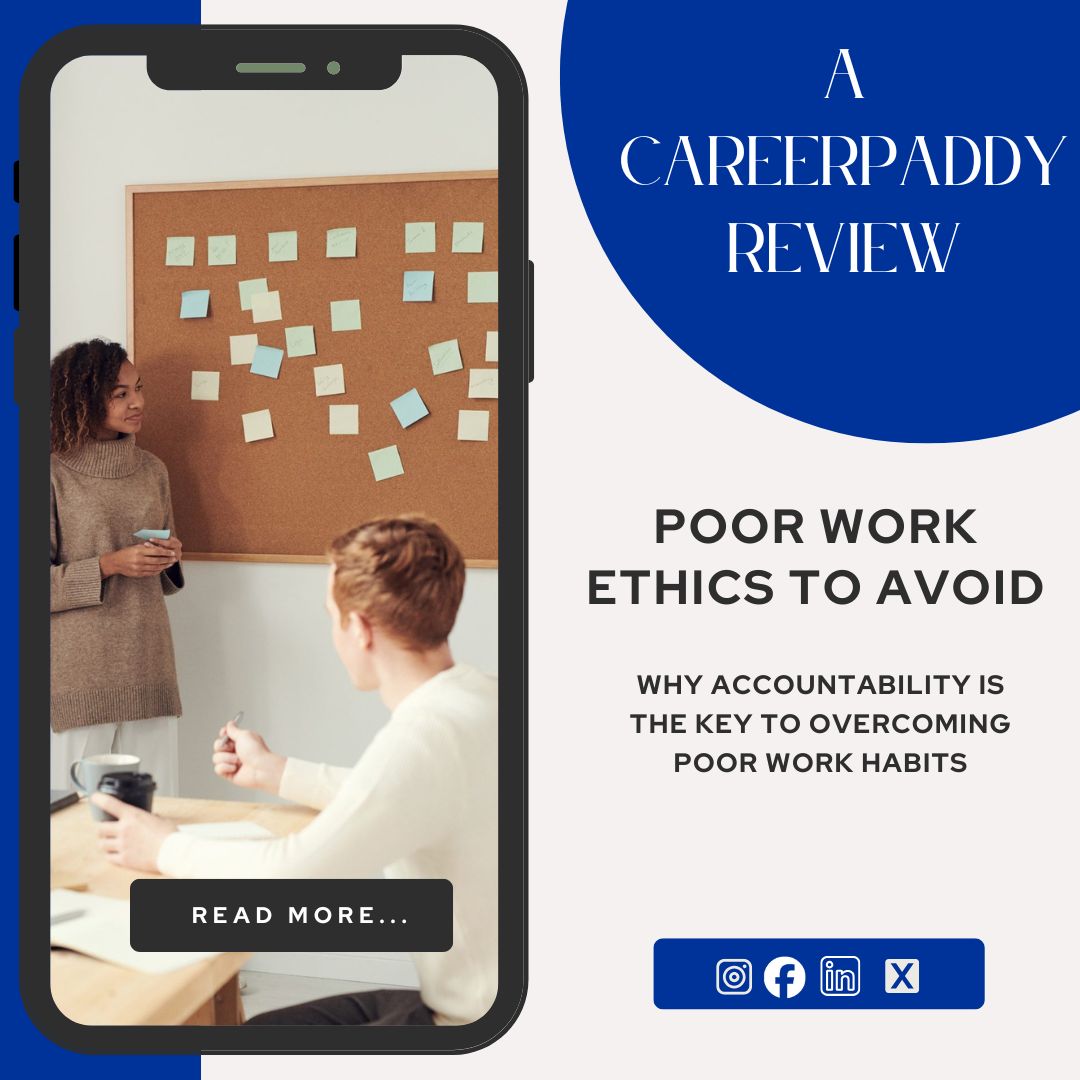Why Accountability Is the Key to Overcoming Poor Work Habits
Caleb’s Wake-Up Moment
Caleb had always prided himself on his ability to juggle multiple tasks. At work, he was seen as someone who could handle it all—meet deadlines, take on extra projects, and keep his head above water no matter how much was thrown at him. But lately, something had changed.
He started skipping meetings. He ignored reminders and was increasingly late with his reports. He had lost track of some of his commitments and, in a few cases, took credit for work done by others. He justified it to himself—”I’m busy,” he’d say. But deep down, Caleb knew something wasn’t right.
Then came the conversation that shook him to his core. His manager pulled him aside, a look of concern etched on her face. “Caleb,” she began, “I know you’re capable, but lately, it seems like you’ve stopped taking accountability for your work. That’s not like you.”
In that moment, Caleb realized the truth: his poor work habits weren’t just affecting his own progress; they were damaging his relationships with colleagues and his professional reputation.
The Power of Accountability
As Tracy Brower points out in her insightful Forbes article, “Poor Work Ethics (And Bad Habits) To Avoid,” certain behaviors can drastically undermine an individual’s career growth. Caleb’s experience—late arrivals, missed deadlines, and a lack of follow-through—was an embodiment of the very habits Brower warns against.
The article outlines four key habits that hold people back:
- Chronic tardiness: Being late to work or meetings.
- Failure to meet deadlines: Missing deadlines without proper communication.
- Taking credit for others’ work: Not acknowledging team contributions.
- Lack of follow-through: Inconsistent efforts in completing tasks.
While these habits might seem trivial at first, their long-term impact is profound. As Caleb discovered, they don’t just affect work output—they erode trust and damage professional relationships.
Why Accountability Matters More Than Ever
At the heart of overcoming poor work habits lies accountability. Accountability isn’t just about completing tasks on time—it’s about owning your actions, whether they’re successes or mistakes. It’s about stepping up when things go wrong and ensuring your promises are kept.
Here’s why accountability is crucial:
- It builds trust: Being accountable means others can rely on you. It creates a foundation of trust between colleagues and managers.
- It promotes growth: When you take responsibility for your actions, you open the door to learning and self-improvement.
- It fosters teamwork: A team thrives when each member is accountable for their role, leading to smoother collaboration and better results.
Caleb’s journey was a wake-up call. Once he acknowledged his mistakes, he took small, intentional steps to rebuild his accountability. He started by being upfront with his manager about delays, prioritizing tasks more effectively, and, most importantly, recognizing and crediting the team when due.
Final Thoughts
The road to redemption isn’t easy, but it starts with a single choice—to take accountability for the work you do. Caleb’s story reminds us that when we embrace accountability, we don’t just avoid the pitfalls of poor work ethics, but we also unlock our true potential.
For those like Caleb, the future is not defined by mistakes but by the courage to acknowledge them and take steps to do better. The journey of accountability is one of growth, improvement, and a true reflection of your commitment to your career.
You can visit CareerPaddy for more information that can guide you through your career
You can also access soft skills that can help you balance your career on the CareerPaddy app
Stay tuned for more analysis from CaeerPaddy
#AccountabilityAtWork #CareerDevelopment #WorkEthics #LeadershipGrowth #ProfessionalIntegrity #SoftSkillsMatter #CareerPaddyInsights
